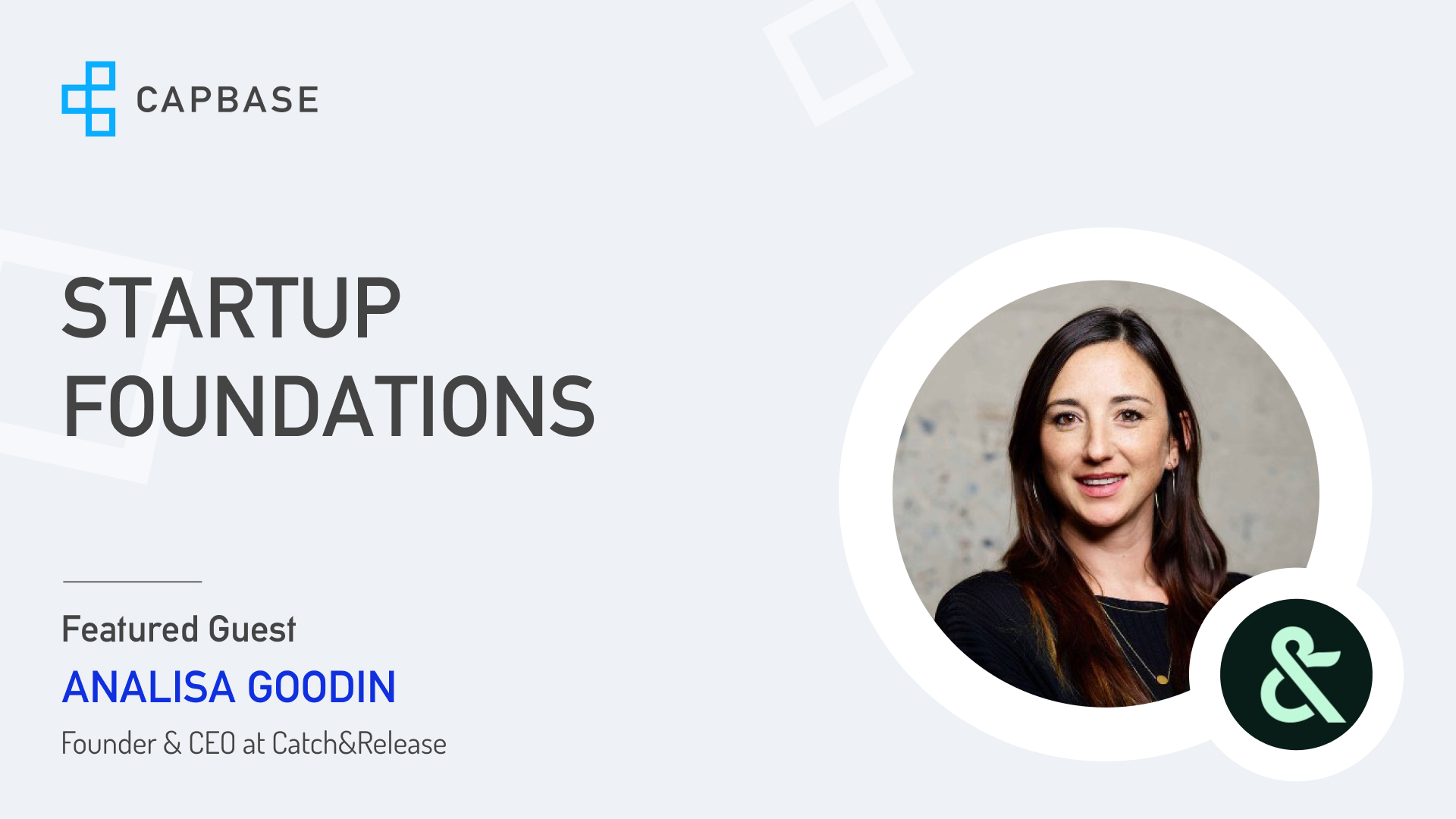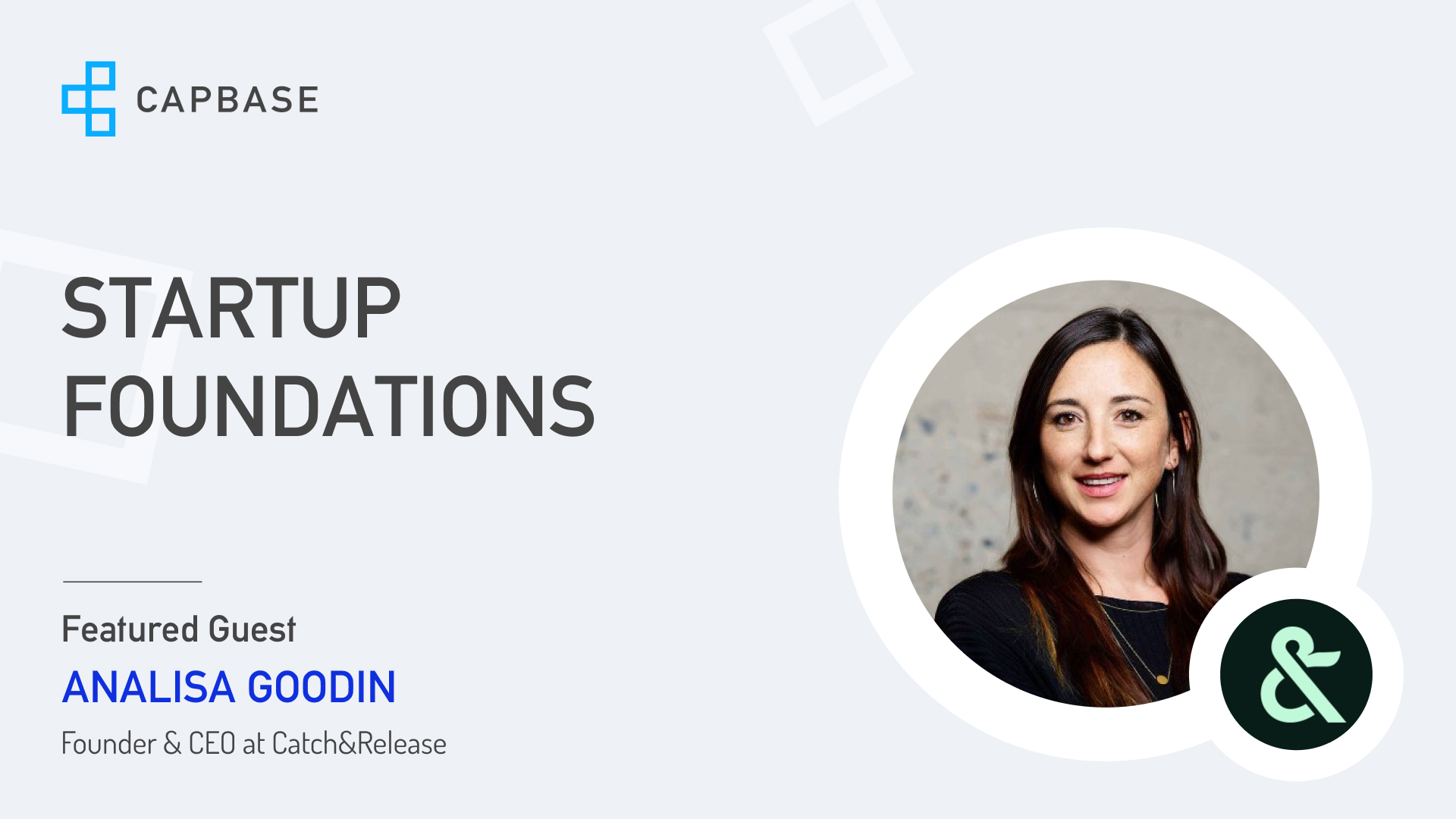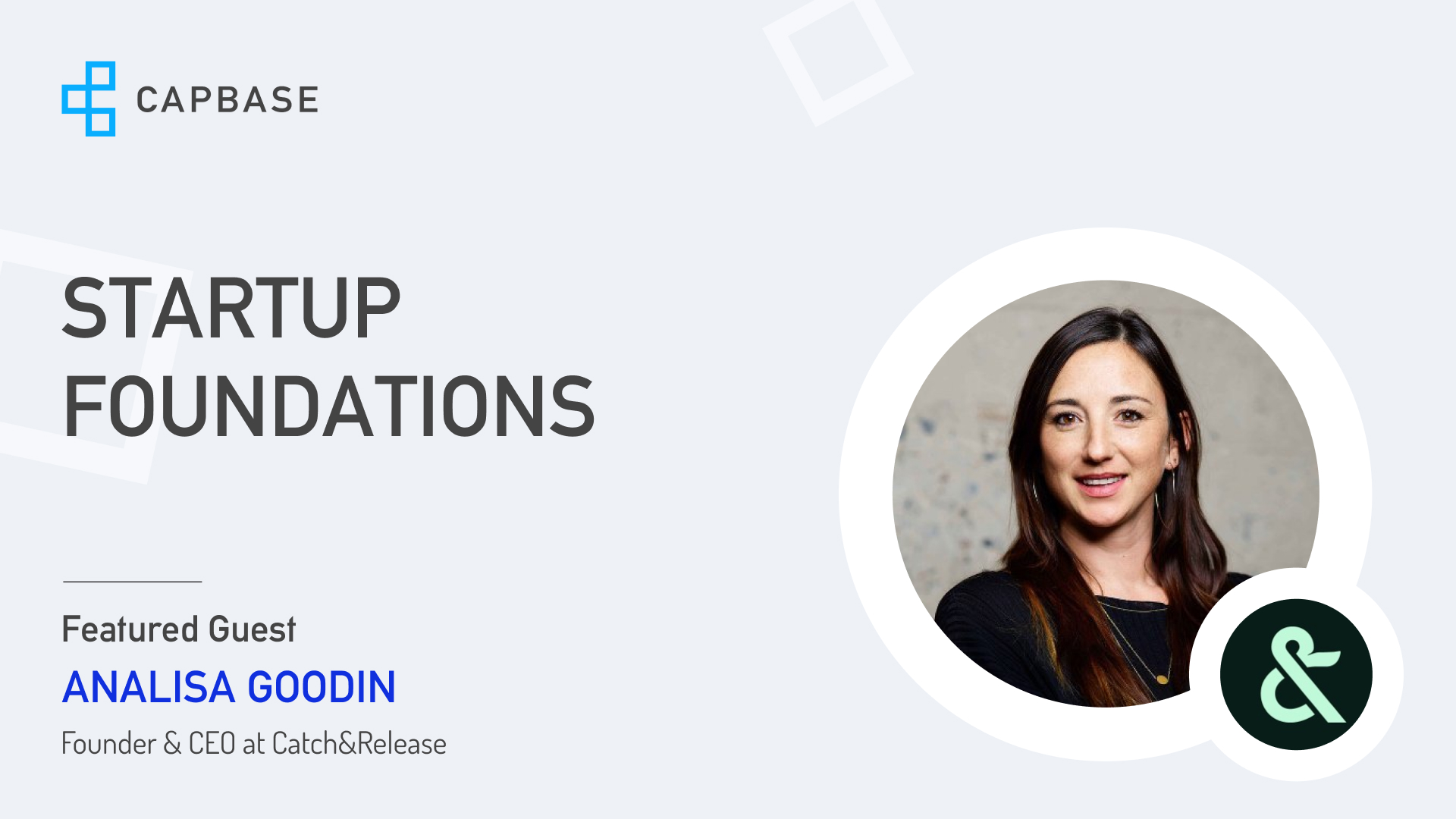The best podcast for entrepreneurs.
Analisa Goodin: Content licensing & discovery
Analisa Goodin is the CEO & Founder of Catch&Release, a software platform that streamlines the discovery and licensing of content from social media and the open web.
About This Episode
Analisa, who has been working with ad agencies and brands for over a decade, talked to us about the hurdles of finding relevant and exciting content that's also ripe for licensing and commercial use, and how her company aims to simplify and automate a lot of the redundant steps in those processes.
Catch&Release has been a bootstrapping affair for a few years, before leaning into venture capital (recently raised $14 million series A from Accel Ventures), and Analisa talks about a unique leverage this has created for her company. We also touch upon the differences in running a startup vs an ad-agency and what types of content are licensable through Catch&Release’s services.
Analisa also discusses the challenges she faced scaling her business, the shift from bootstrapping to venture capital, recruiting for startups, the future of digital content production and shares her advice to first time founders: fall in love with what you’re building!
Episode transcript
Greg Miaskiewicz:
With the rise of TikTok, YouTube and other platforms where you see independent creators and
influencers, they're producing really high quality content. How do you think content production is going
to evolve? How do you think, for example, advertising is going to evolve on the internet?
Analisa Goodin:
Yeah, well, I think there's a supply and demand dynamic in the advertising production industry. The
more channels that advertisers have to post their content, the more assets they need to create, the
better they understand the segmentation of their audiences, the more assets they're going to have to
create. And so that puts a huge risk to the traditional production industry, where shooting by hand and
getting custom content made for you on a bespoke basis is beautiful and original and ownable, but it's
not very scalable. It's expensive. And it takes a lot of time.
So we believe that by making the Internet's creative content available and licensable and safe, and by
creating a value exchange between owners of content and buyers of content that will fundamentally
change the way content is produced. Advertisers will develop stories based on content they're seeing
online versus what they're conceiving in their heads and going out and shooting on spec, not exclusively.
I think there's a world where both disciplines exist.
It's not the end of one and the beginning of another,
it's a little bit like Uber and taxis. You can still get a taxi in New York and sometimes that's better in
whatever situation you're in than calling an Uber, but Uber fundamentally the transportation industry,
and I believe licensing the internet will fundamentally change the production industry.
Analisa Goodin: Yeah, well, I think as CEO, I think one of the key attributes that leads to success is great storytelling and storytelling is about translating the vision into words and into emotional resonance that multiple audiences can understand, whether it's employees and you're trying to rally them to take a risk and move in a new direction. Whether it's investors, and you're trying to also convince them to take a risk and give you money. Or whether it's new recruits and you're trying to help them understand and take the risk to join something that's still unproven and where there's highly competitive market. So I think storytelling is really about mitigating risk and the audience's head, and getting so emotionally interested in the opportunity that it's hard to turn down.
So I would say yes, recruiting, it's a competitive environment, not even just to get the talent, but also even, I've found in the last several months that we've been doing a lot of recruiting, just getting the recruiter to be able to start. They're booked, like recruiters are at capacity. So that part's all a challenge, but I can't think of a single instance where being able to convincingly tell a story in a way that that audience feels connected to hasn't helped us compete against other opportunities and other people. So we've been, I think, that's leading to more and more effectiveness and faster and faster speed is how quickly can candidates relate to and become passionate about what you're doing? How quickly can you get them there? And if you can get them there quickly, they're much more interested in taking the risk with you.
Greg Miaskiewicz: Yeah. That definitely holds true. Even for things like negotiating partnerships and doing business development and other facets of growing your business.
Analisa Goodin: Yeah. I definitely would agree with that. I think it's an asset that we don't talk about a lot, but it's incredibly important and really applies to almost any facet of relationships you're looking to build as a CEO.
Analisa Goodin: Yeah, definitely. So we look at the market opportunity for licensing the internet as being multimedia. Photos, videos, music, art, writing, graphics. I look at the internet as creative inventory. There's just so much of it out there. And it's all owned by someone and rights are real and intellectual property is real. So there needs to be a process to exchange the rights between an owner of a piece of content, whether that's music, video, or photo or writing and translate those rights to a buyer or exchange those rights to a buyer.
We work mostly in that exchange of rights in the commercial production industry, where the need for moving quickly and getting access to premium creative material is high. And the barrier to licensing is also high. So Catch&Release currently provides mostly licensing of photos and videos to many of the commercials that you see out of home, on TV, and the Superbowl, on digital and social. But the engine that we're building and the way that we're approaching the exchange of rights can be mapped to other media as well. So we're in our big vision or big sort of when we look at the big opportunity, we're looking at a rights engine that can exchange across media.
This episode is a part of the Startup Foundations podcast.Learn epic startup stories from some of the most exciting founders in the valley!
This episode is a part of the Startup Foundations podcast.
Related Episodes

Sophia Yen is the CEO and co-founder of Pandia Health, a women-founded and women-led birth control delivery company. Pandia partners with pharmacies and doctors who specialize in women’s health to bring convenient, dignified and stress-free ways of accessing telehealth services.

Ashley Etling is the CEO and co-founder of LimeLoop, a smart shipping platform building reusable packaging and sustainable logistics solutions.

Jill Koziol is the CEO and co-founder of Motherly, an educational platform and lifestyle brand redefining motherhood. Motherly’s goal is building a movement helping women across the world thrive as mothers and make the most of their parenting experience.






